U.S. businesses have been struggling with economic uncertainty, store closures, and mass layoffs in recent years. Trade wars, inflation, and shifting consumer habits have forced American companies to scale back their operations. But north of the border, a very different story is unfolding. Canada’s businesses are not just surviving; they’re thriving and expanding. From tech startups to retail giants, financial institutions to resource companies, Canadian firms are making bold moves, investing in new markets, and growing their global influence. While American companies shrink, these 27 Canadian businesses prove that innovation, resilience, and smart strategy can lead to success even in uncertain times.
Shopify

While many U.S. e-commerce platforms struggle with declining consumer spending, Shopify is growing stronger. The company is helping businesses expand internationally through Shopify Markets, a platform that simplifies cross-border selling. Shopify has also invested in AI-driven tools and fulfillment networks to enhance customer experience. By prioritizing digital transformation and global partnerships, Shopify continues to cement itself as a leader in the future of online commerce.
Couche-Tard
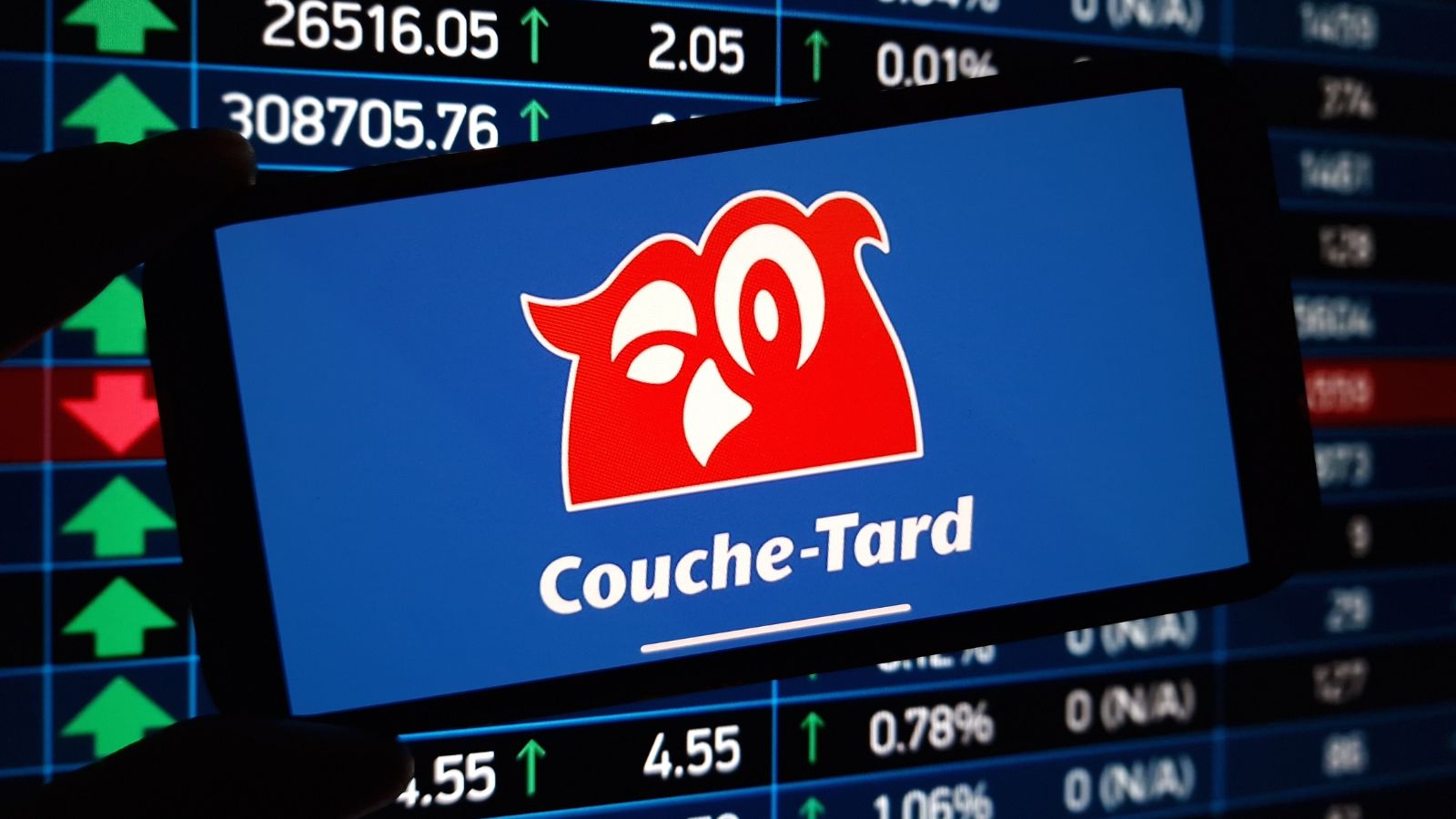
At a time when U.S. convenience store chains are struggling with labor shortages and rising operational costs, Couche-Tard is aggressively expanding. The parent company of Circle K has been acquiring competitors across Europe, North America, and Asia, adding thousands of stores to its network. Couche-Tard also embraces automation, self-checkouts, and digital payment systems to stay ahead of changing consumer habits. Its ability to adapt and innovate has made it a dominant player in the retail sector.
RBC
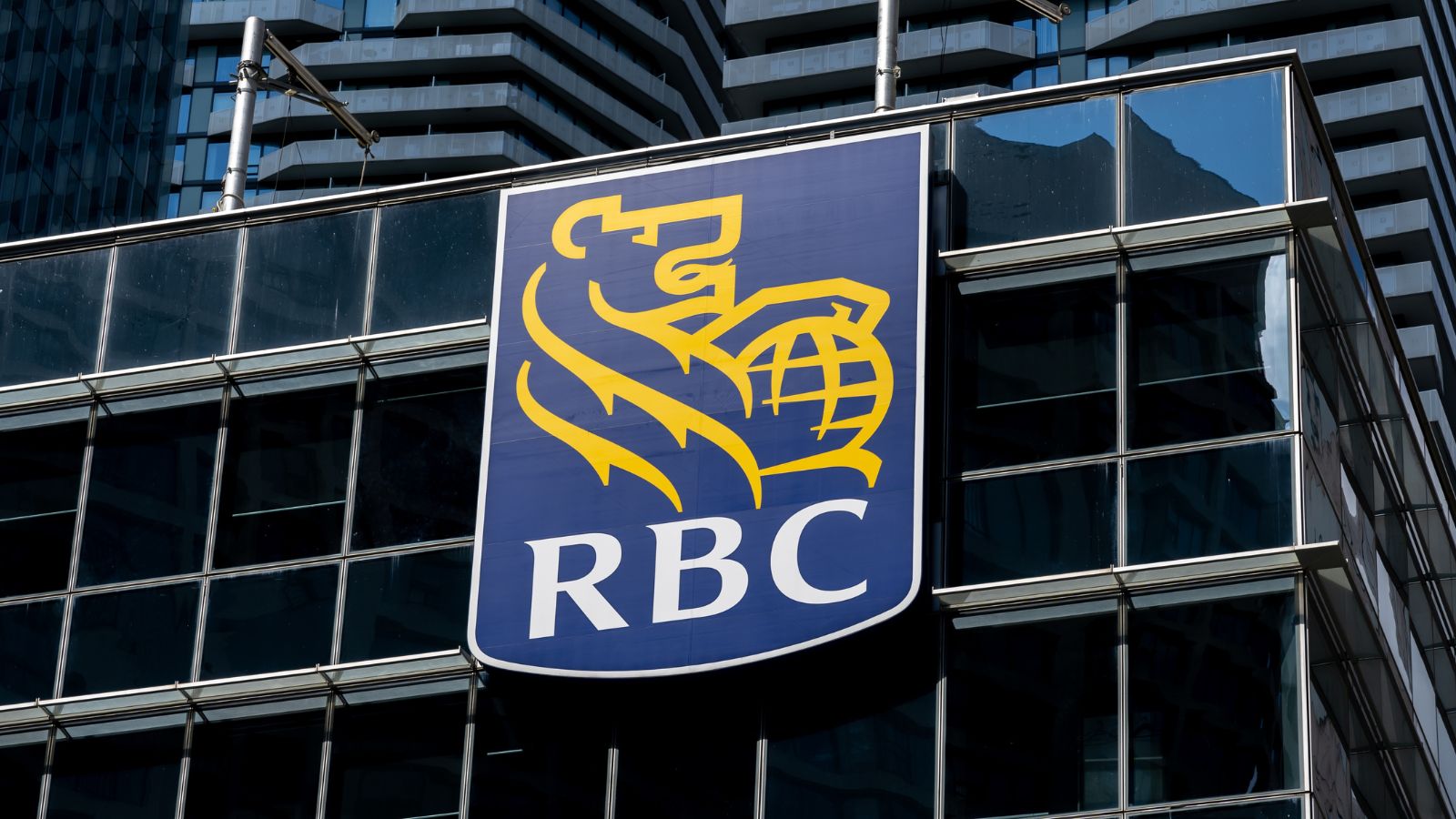
While many U.S. banks are closing branches and reducing staff, the Royal Bank of Canada (RBC) is expanding its financial footprint. RBC recently acquired HSBC Canada, strengthening its position as one of North America’s leading financial institutions. The bank has also invested heavily in fintech, AI-driven wealth management, and digital banking solutions to attract global clients. With its expansion strategies, RBC is proving that Canadian banks can compete on the world stage.
Canadian Tire
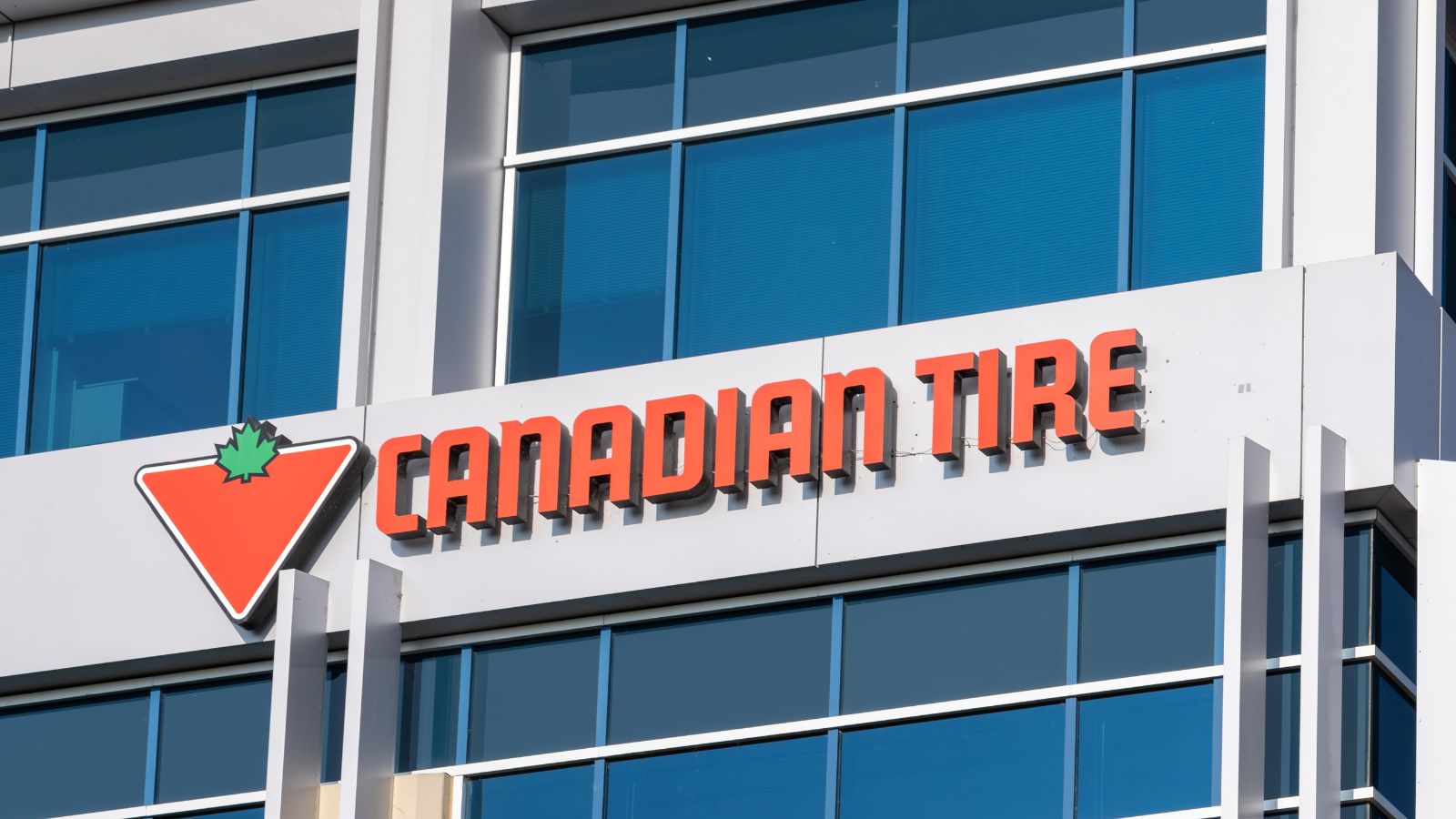
As U.S. retailers struggle with supply chain disruptions, Canadian Tire is building its distribution networks to ensure smooth operations. The company has invested in automated warehouses, e-commerce solutions, and an efficient logistics network to keep its shelves stocked. By strengthening its digital presence and expanding its brand portfolio, Canadian Tire is securing long-term growth while many American retailers are downsizing.
Telus

While some U.S. telecom giants are losing market share, Telus is growing beyond traditional telecommunications. Through Telus Health, the company is revolutionizing virtual healthcare, digital medical records, and AI-driven diagnostics. It has also expanded into cybersecurity and smart home technology, diversifying its revenue streams. By focusing on innovation and high-demand sectors, Telus is future-proofing itself in ways many American telecom companies are not.
Brookfield Asset Management

While U.S. real estate firms face challenges with high interest rates, Brookfield Asset Management is acquiring high-value properties worldwide. The company has been expanding into renewable energy projects, data centers, and infrastructure investments, ensuring diversified growth. With assets across Europe, Asia, and North America, Brookfield is proving that strategic acquisitions can lead to long-term stability even in turbulent markets.
Tim Hortons
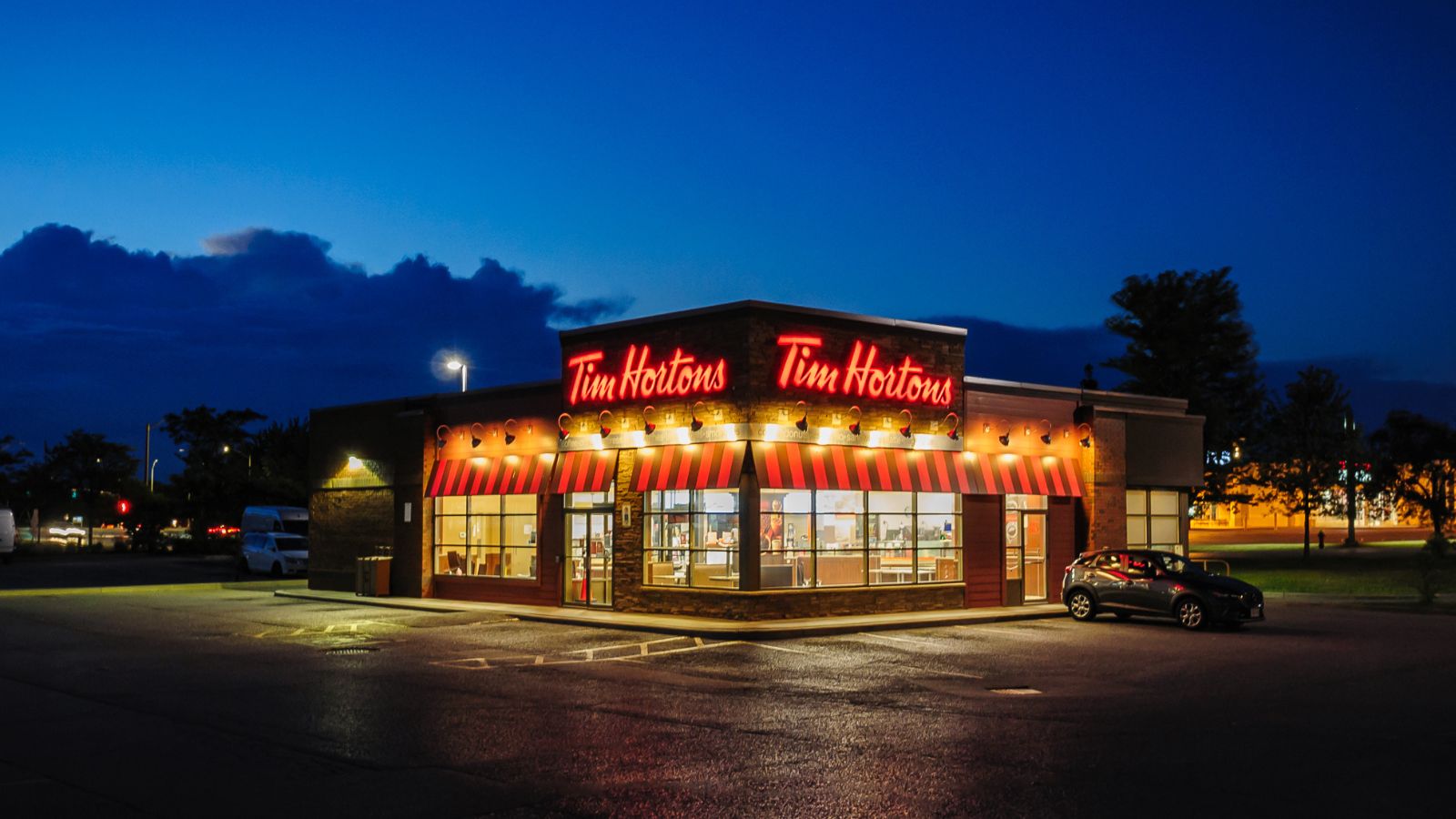
Unlike many American fast-food brands that are closing locations, Tim Hortons is aggressively expanding internationally. The company has opened new outlets in China, India, the Philippines, and the Middle East, adapting its menu to local tastes. By focusing on franchise growth, digital ordering, and delivery partnerships, Tim Hortons is ensuring its brand remains competitive in global markets.
CN Rail

As U.S. rail companies deal with operational disruptions, Canadian National Railway (CN) is investing in modernized rail infrastructure to enhance freight transportation across North America. The company is expanding its intermodal services, improving efficiency in goods movement, and embracing eco-friendly technologies. These efforts ensure that CN Rail remains a critical player in global trade and logistics.
Bombardier

While some U.S. aircraft manufacturers are struggling, Bombardier has seen rising demand for its Global 7500 private jet, a top choice for luxury air travel. The company has expanded its manufacturing operations, enhancing its ability to meet global demand. With a focus on high-end business aviation and advanced aerodynamics, Bombardier is soaring past its competition.
Magna International
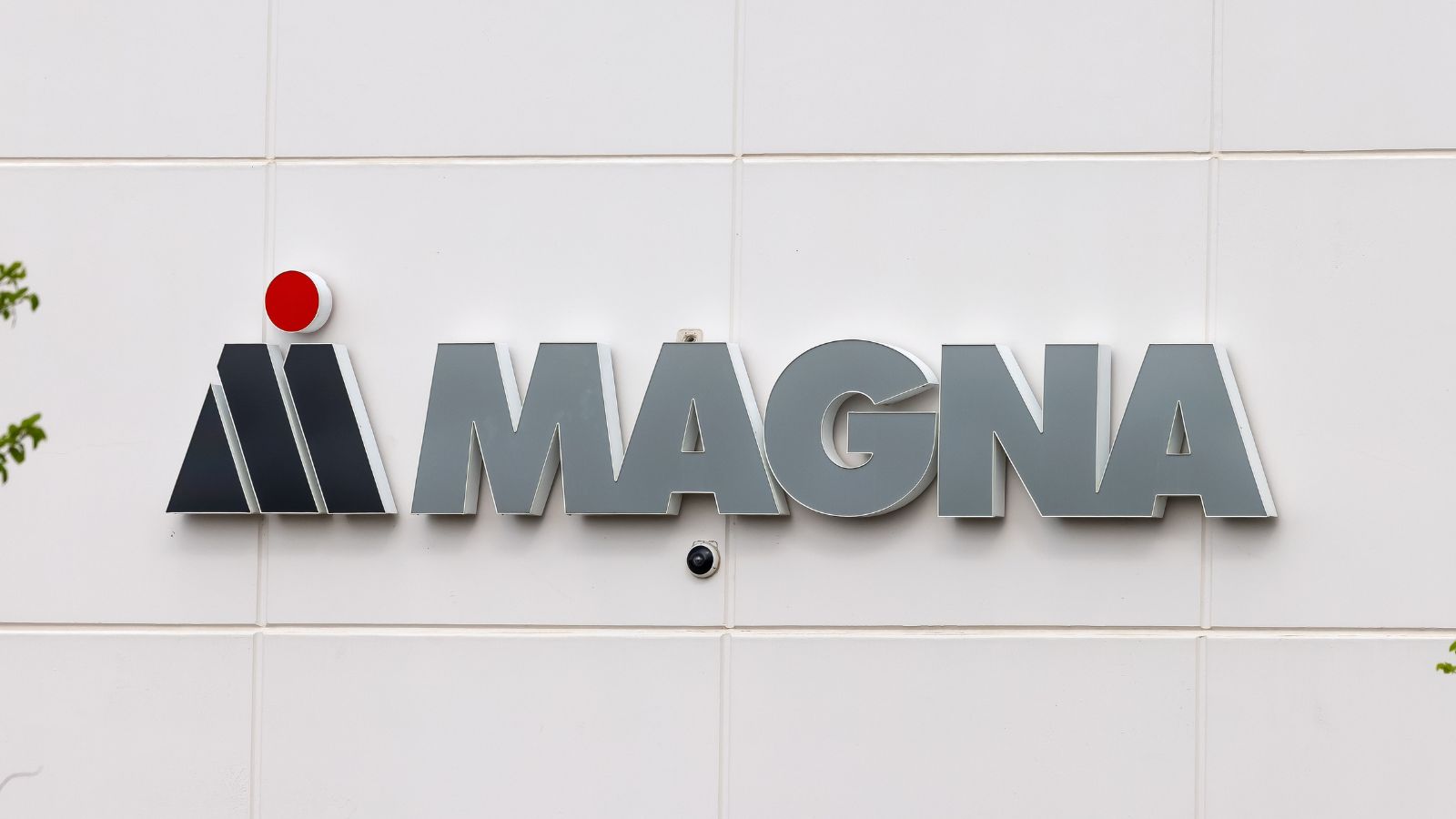
As American automakers struggle with the EV transition, Magna International has positioned itself as a key supplier of electric vehicle parts. With contracts from Tesla, GM, and European automakers, Magna is a leader in battery technology, EV drivetrains, and lightweight vehicle components. By staying ahead of industry trends, Magna is ensuring Canada’s place in the future of transportation.
Sun Life Financial

As some U.S. insurance companies struggle with rising healthcare costs and economic volatility, Sun Life Financial is expanding into Asia and Europe, where insurance demand is booming. The company has been investing in digital insurance platforms and AI-driven customer support, making policies more accessible and personalized. By tapping into emerging markets and focusing on digital transformation, Sun Life is securing its place as a global insurance leader.
Lululemon

While many U.S. clothing brands are seeing declining sales and store closures, Lululemon is thriving, particularly in China, Europe, and the Middle East. The company’s direct-to-consumer model, combined with innovative product lines like yoga wear, technical outerwear, and men’s sports apparel, has made it a leader in the global athleisure market. By investing in community engagement and digital retail, Lululemon continues to expand while others contract.
Waste Connections

With the growing global focus on sustainability and waste management, Waste Connections has been acquiring firms across the U.S. to expand its operations. The company specializes in eco-friendly waste disposal and recycling innovations, helping businesses and cities meet their environmental goals. By investing in technology-driven waste solutions, Waste Connections is securing long-term growth in an industry facing increasing regulations.
OpenText

While U.S. tech firms face mass layoffs and declining investments, OpenText, Canada’s largest software company, is growing rapidly. The company’s expansion into AI, cybersecurity, and cloud computing has positioned it as a trusted partner for businesses worldwide. Through strategic acquisitions, OpenText is helping global enterprises manage and protect their digital assets in an increasingly cyber-threatened world.
Restaurant Brands International

The parent companies of Tim Hortons, Burger King, and Popeyes are expanding aggressively while some U.S. fast-food chains are struggling. By opening new locations in Latin America, Asia, and Europe and modernizing its digital ordering and drive-thru systems, the company is tapping into new revenue streams and consumer preferences. Its ability to adapt menus and improve service models keeps it ahead of the competition.
Canada Goose
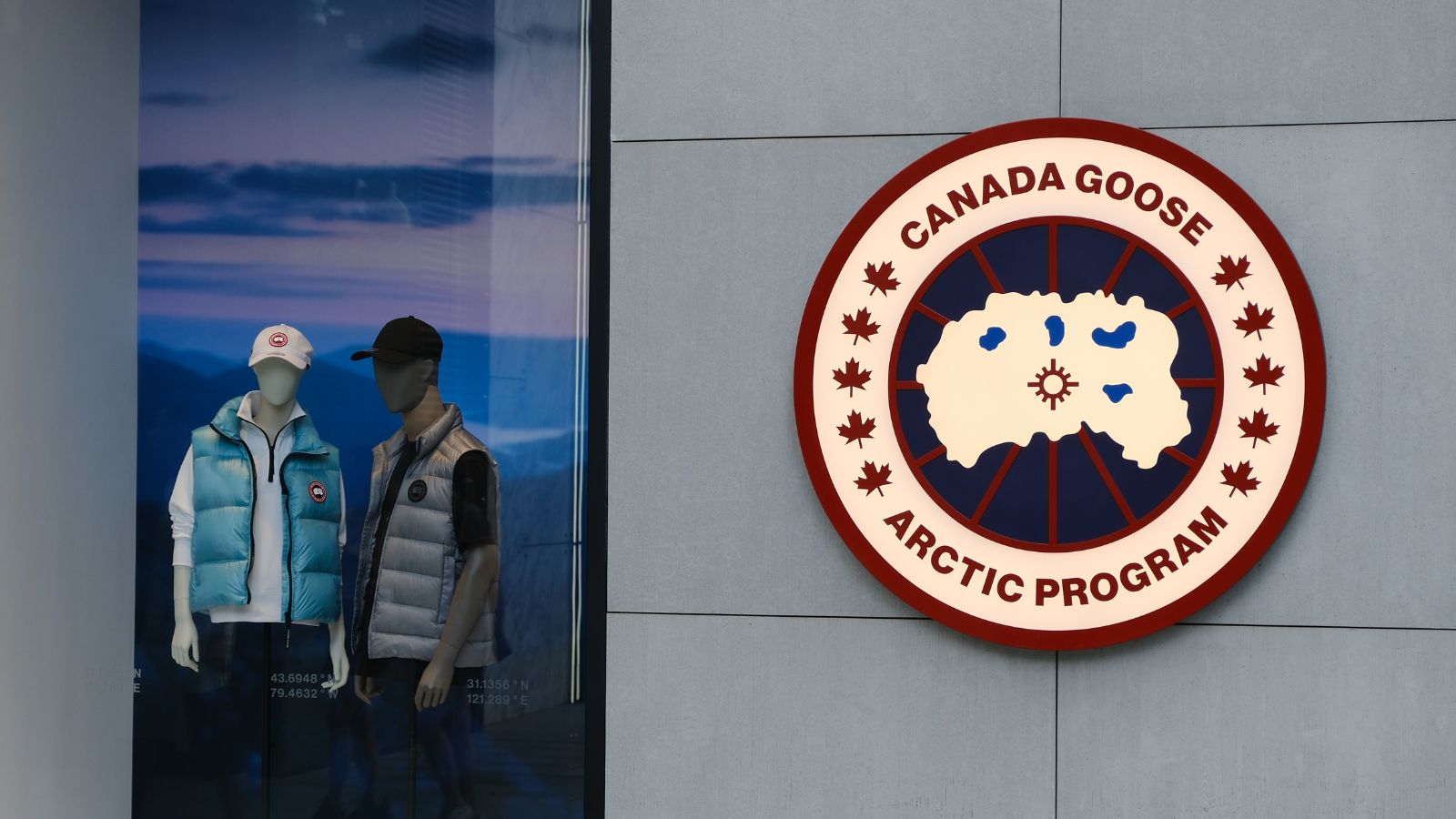
Despite economic slowdowns affecting luxury brands, Canada Goose has successfully expanded in Europe and Asia, capitalizing on the demand for premium outerwear. The company has also embraced sustainable materials and ethical sourcing, appealing to environmentally conscious consumers. By maintaining its reputation for high-quality craftsmanship, Canada Goose continues to dominate the global luxury apparel market.
Saputo
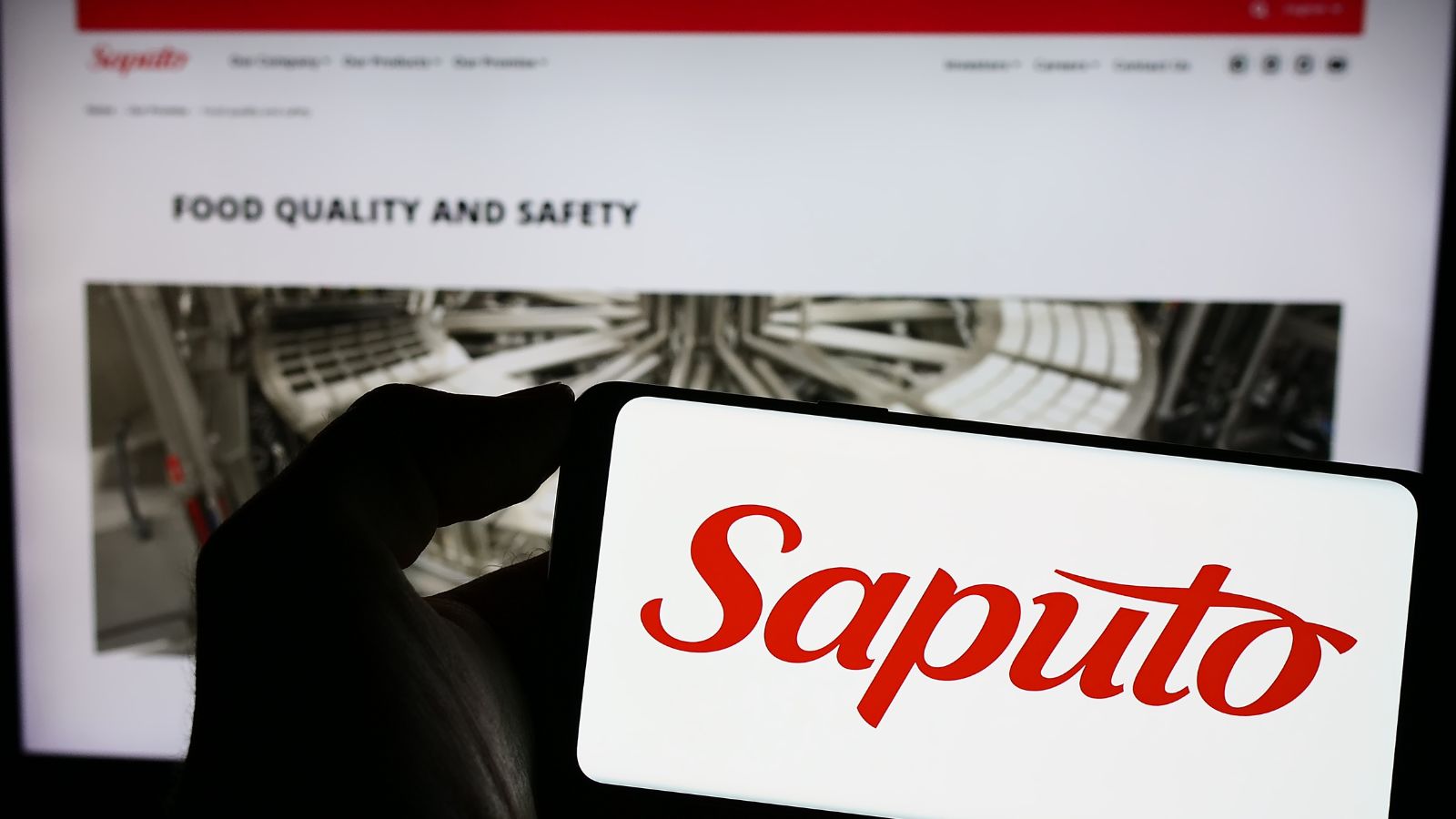
While U.S. dairy companies face declining demand and supply chain challenges, Saputo is growing its market share through strategic acquisitions in the U.S., Australia, and the U.K. The company is also investing in plant-based dairy alternatives to meet shifting consumer preferences. With global food demand rising, Saputo is ensuring that Canada remains a leader in the dairy industry.
Fairfax Financial

As some U.S. investment firms hesitate in uncertain markets, Fairfax Financial, led by billionaire Prem Watsa, has been acquiring undervalued companies. The firm has invested in insurance, real estate, and infrastructure, ensuring steady returns despite economic fluctuations. Fairfax’s buying strategy during downturns has positioned it as a dominant force in global finance.
Alimentation Couche-Tard
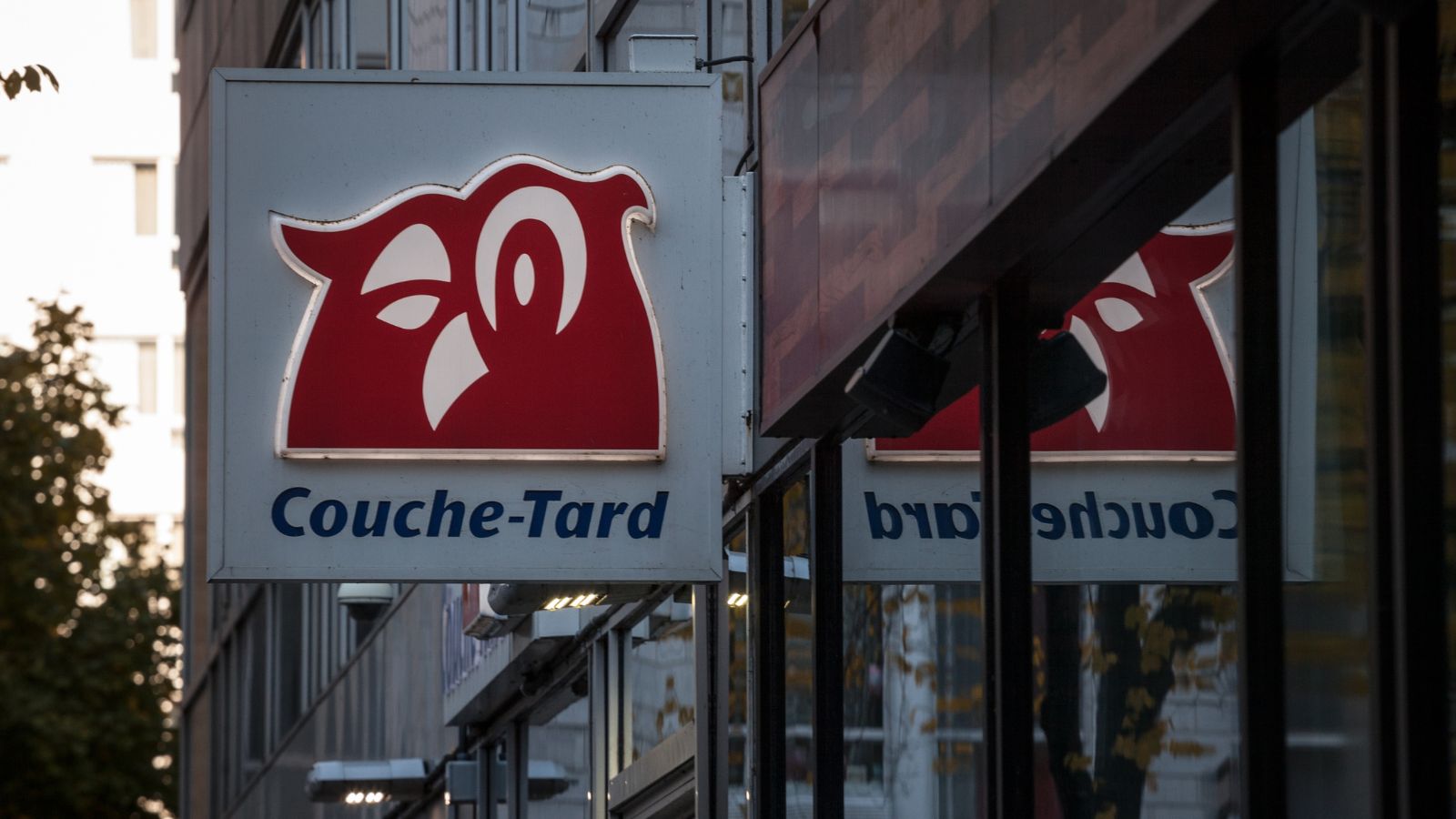
At a time when U.S. gas station chains struggle with rising energy costs and changing consumer habits, Alimentation Couche-Tard is expanding globally. The company’s investment in electric vehicle charging stations and digital payment solutions is preparing it for the future of transportation. With new stores opening in Europe, Asia, and Latin America, Couche-Tard is proving that innovation and adaptability drive success.
Enbridge
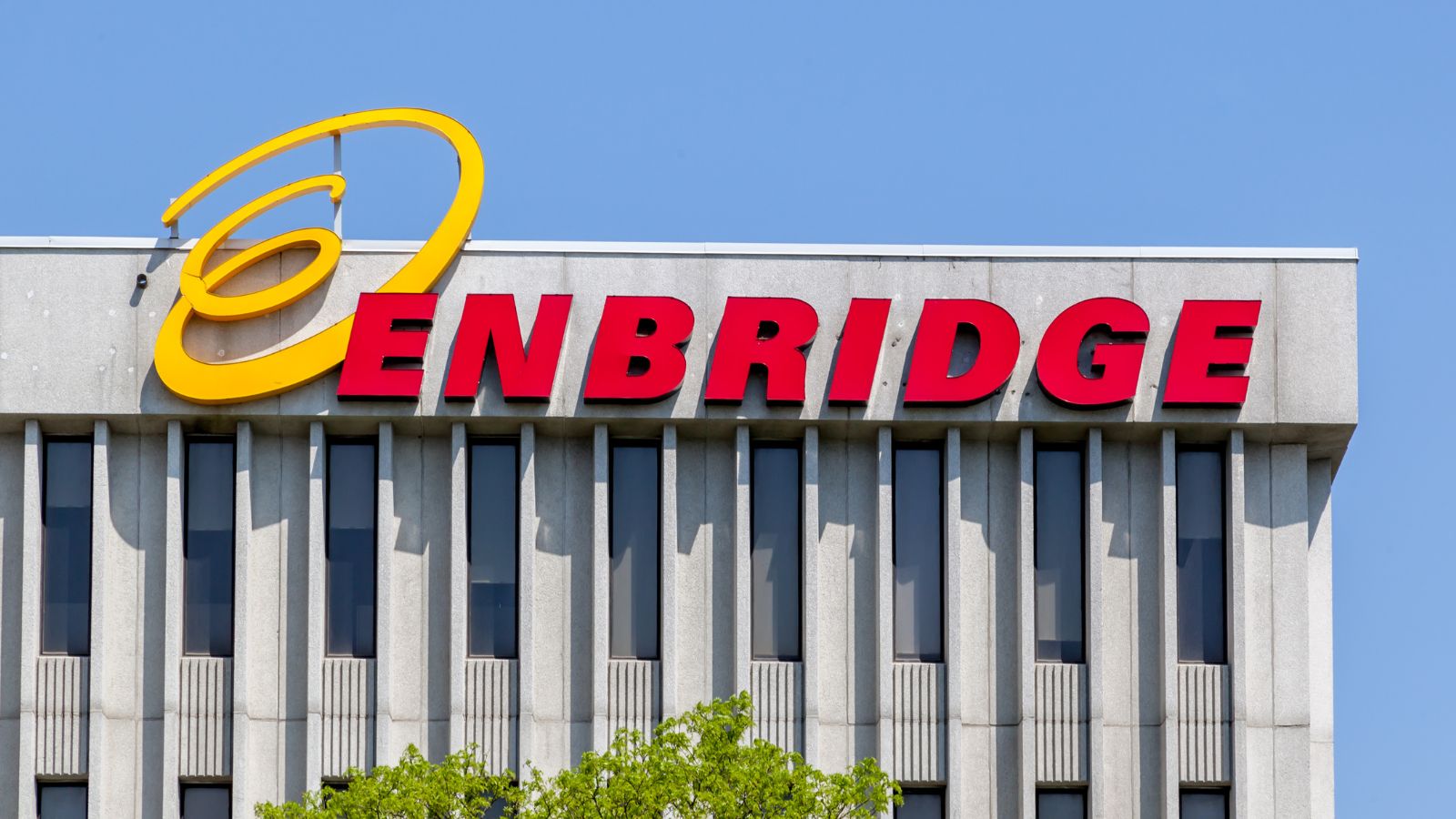
The U.S. energy firms face regulatory battles and shifting oil demand, and Enbridge is investing in renewable energy projects like offshore wind farms and solar initiatives. By diversifying its portfolio beyond traditional oil and gas, Enbridge is securing its future as a leader in clean energy solutions and ensuring long-term profitability in an evolving industry.
Bombardier Recreational Products (BRP)
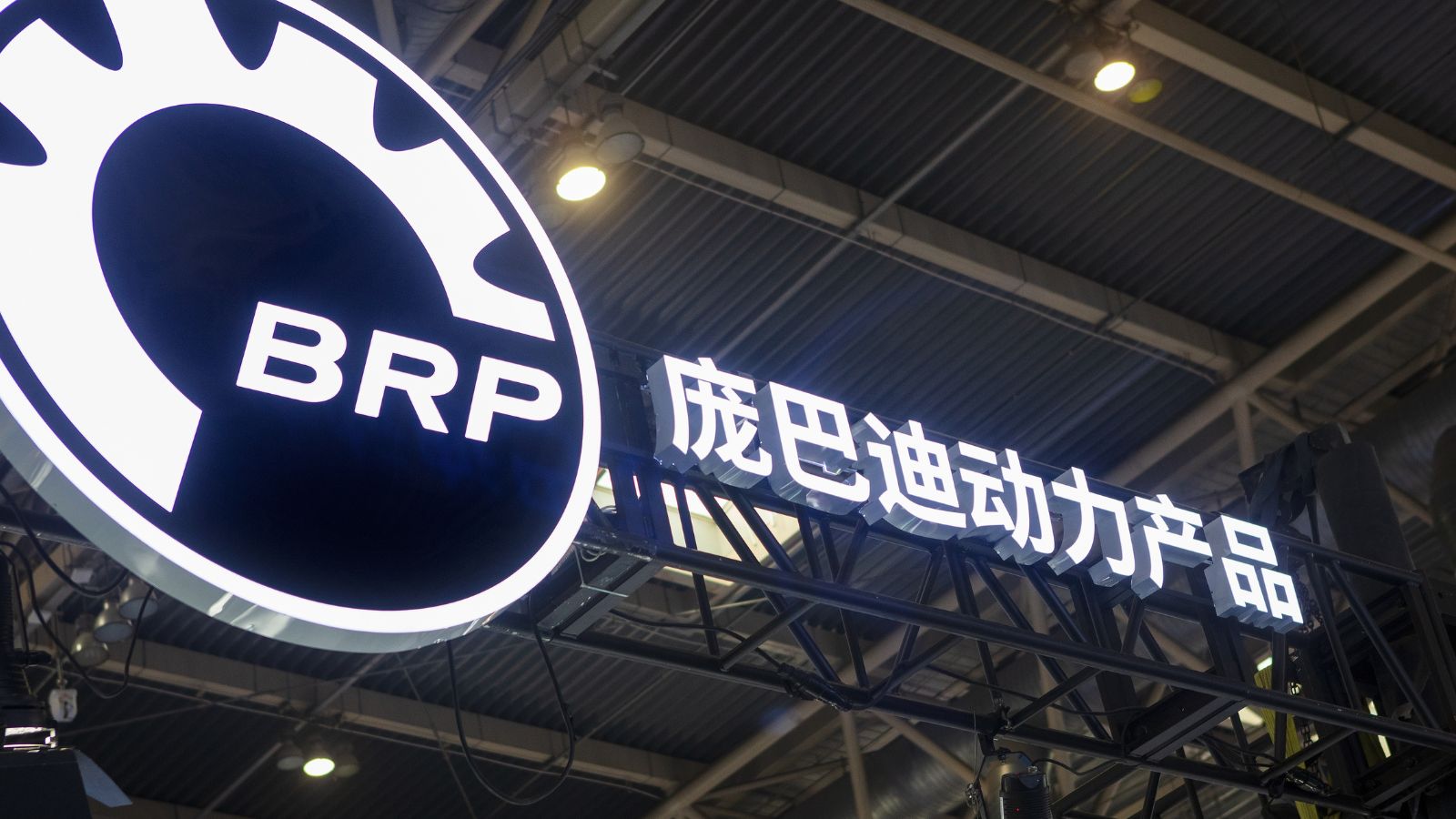
As some U.S. vehicle manufacturers scale back, B.P.R., the maker of Ski-Doos, Sea-Doos, and Can-Am vehicles, is expanding into new global markets. With rising interest in outdoor adventure and electric recreational vehicles, BRP is pioneering eco-friendly mobility solutions that cater to adventure seekers worldwide.
Agnico Eagle Mines

As the price of gold rises, Agnico Eagle Mines has been expanding its mining operations in Canada, Mexico, and Europe. The company is capitalizing on increased demand for precious metals as safe-haven investments, ensuring long-term growth in a volatile economy. With sustainability initiatives and responsible mining practices, Agnico is securing Canada’s role in the global mining industry.
GFL Environmental

As governments worldwide push for better waste management, GFL Environmental is expanding its eco-friendly waste disposal services across Canada and the U.S. By investing in recycling innovation, waste-to-energy solutions, and carbon reduction programs, GFL is proving that sustainability can drive business success.
Element Fleet Management

As U.S. fleet management firms struggle with supply chain disruptions, Element Fleet Management is leading the way in electrified and AI-driven vehicle management. The company is partnering with global automakers to optimize corporate vehicle fleets, helping businesses cut costs while transitioning to eco-friendly transportation.
Dollarama
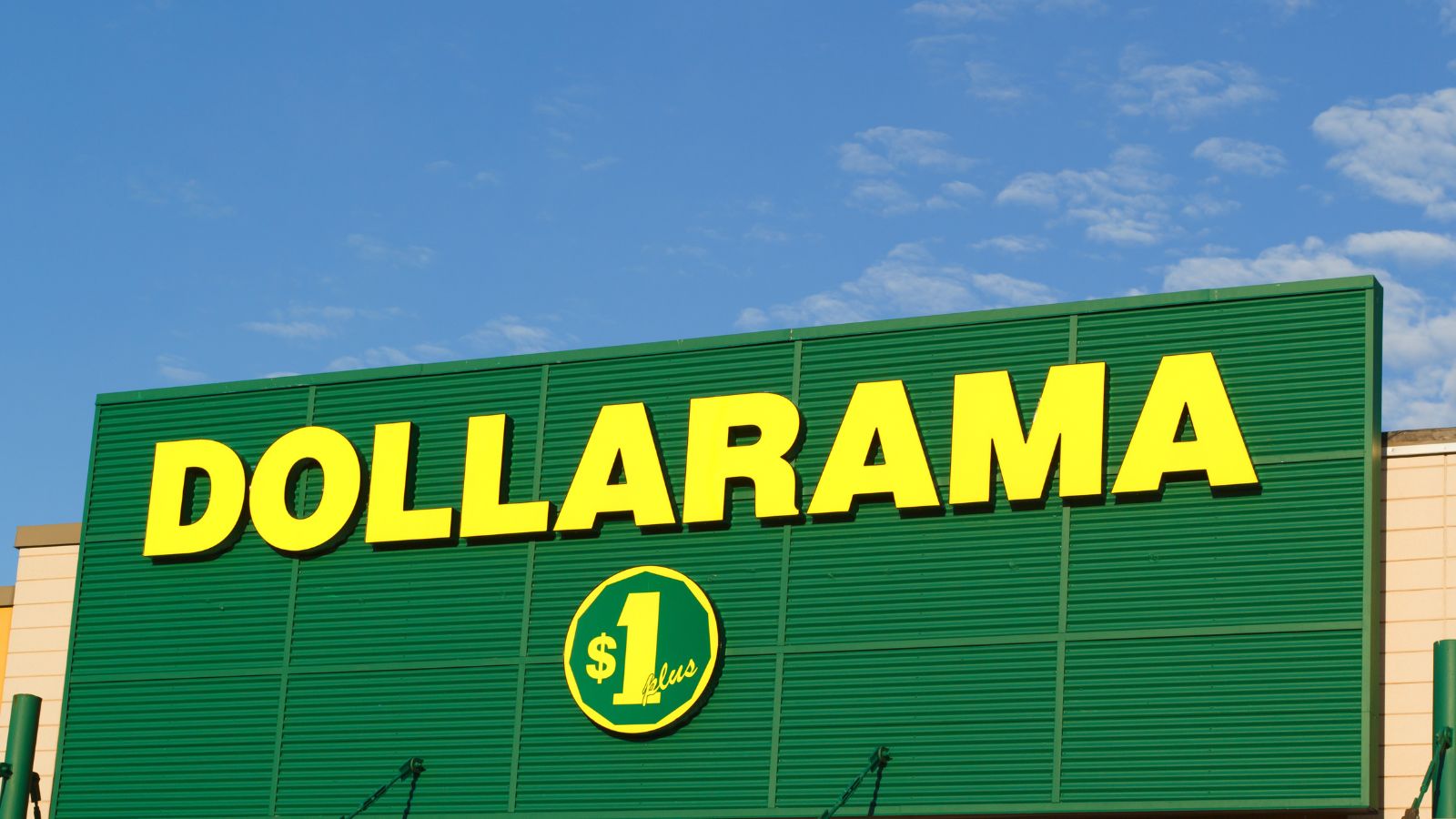
As U.S. discount retailers face store closures and financial struggles, Dollarama is opening new locations in Canada and Latin America. By keeping prices low, expanding its product offerings, and improving supply chain efficiency, Dollarama has become a dominant player in the discount retail market.
Nutrien

With global food security becoming a major concern, Nutrien, the world’s largest producer of potash fertilizer, is expanding into new markets in Asia and South America. By investing in sustainable farming solutions and precision agriculture, Nutrien is ensuring that Canada remains a key force in feeding the world.
Canopy Growth

While many U.S. cannabis companies struggle with legal and financial challenges, Canopy Growth is expanding its operations in Germany, Australia, and the U.K. With investments in medical and recreational cannabis products, Canopy Growth is securing its place as a leader in the global cannabis market.
Conclusion

While U.S. businesses are scaling back, cutting jobs, and closing locations, Canada’s companies are expanding, innovating, and securing new markets worldwide. From technology and finance to retail, energy, and agriculture, these 27 businesses are proving that Canada’s economic future is bright.
25 Countries Predicted to Become Economic Superpowers in the Next 20 Years

The strength of an economy plays a crucial role in various international policies about trade and relations. Certain factors determine the strength of an economy, including population growth, availability of resources, and development and advancement. Here are 25 countries predicted to become economic superpowers in the next 20 years
25 Countries Predicted to Become Economic Superpowers in the Next 20 Years
